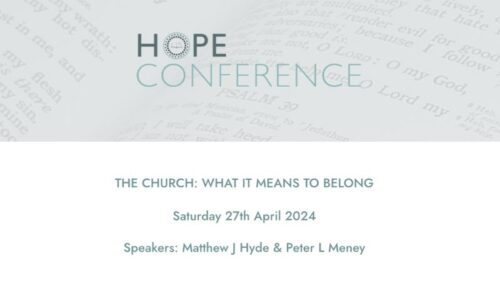Plain Reasons for the AV: Bears a Stronger Testimony to the Godhead of the Lord Jesus Christ
4. The Authorised Version bears a stronger testimony to the Godhead of the Lord Jesus Christ than we find in many modern versions.
Some of the old manuscripts favoured by modern scholars leave out or alter some of the most important passages which declare that our Redeemer is equal and co-eternal with God, and that He is Himself “God manifest in the flesh”. This great testimony in 1 Timothy 3.16 is weakened or lost in nearly every modern version. In many also the testimony of Mark 1.1 is lost, where in the Authorised Version we read “The beginning of the gospel of Jesus Christ, the Son of God”. The modern versions tend to omit or question the statement that He is “the Son of God” (see also John 6.69 and 9.35). In Hebrews 1.8, God the Father addresses the Son as God: “Unto the Son he saith, Thy throne, O God, is for ever and ever”. In many modern versions this testimony is weakened or lost.
In the Old Testament the Authorised Version says in Isaiah 9.6 that the coming Saviour’s Name shall be called “Wonderful, Counsellor, The mighty God, The everlasting Father, The Prince of Peace”. Many modern versions change this passage so that the Messiah is not called “The mighty God”. Moffatt calls Him no more than “a Divine hero”. In Romans 9.5 the Authorised Version says that Christ is “over all, God blessed for ever”, while modern versions tend to change this so completely that only God is said to be “over all” and “blessed for ever”, and Christ is not said to be God.
Other altered passages concerning the Person of Christ are found in Isaiah 7.14 and Matthew 1.23, where modern versions sometimes put “young woman” instead of “virgin”, thus obscuring the doctrine that Christ was born of a virgin. Many versions also omit the word “firstborn” in Matthew 1.25, where the Authorised Version bears a clear testimony that Jesus was Mary’s firstborn Son. The virgin birth is further called into question at Luke 2.33, where modern versions refer to Joseph as the “father” of Jesus. In the book of Micah (5.2), the prophet speaks of the coming birth of a Ruler at Bethlehem, ”whose goings forth have been from of old, from everlasting”, clearly referring to the eternal nature of the Son of God. In the New International Version this becomes – “whose origins are from of old, from ancient times”, which could easily give a reader the impression that Christ was a created being. The same error occurs in the Revised Standard Version and other modern versions.
——————————-
Trinitarian Bible Society, “Plain Reasons for Keeping to the Authorised Version”


